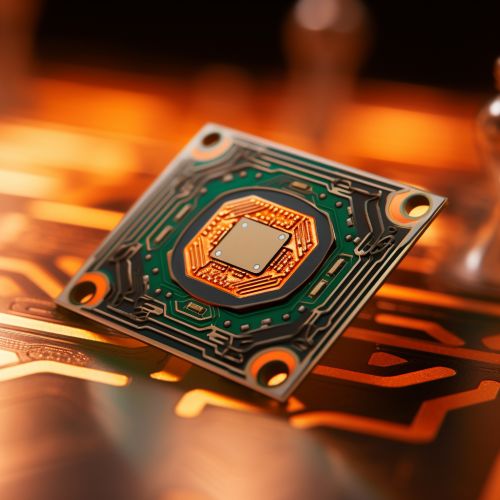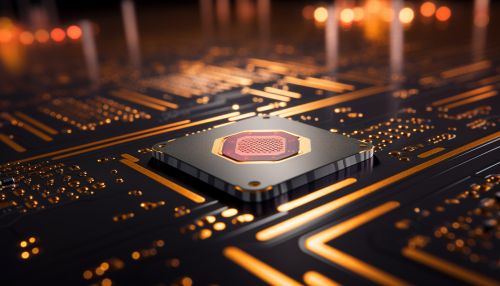Biosensor
Introduction
A Biosensor is an analytical device used for the detection of a chemical substance that combines a biological component with a physicochemical detector. The sensitive biological element, e.g. tissue, microorganisms, organelles, cell receptors, enzymes, antibodies, nucleic acids, etc., is a biologically derived material or biomimetic component that interacts with, binds with, or recognizes the analyte under study. The biologically sensitive elements can also be created by biological engineering.
Principle of Operation
Biosensors work on a principle similar to that of an Enzyme-Linked Immunosorbent Assay (ELISA), but with a notable difference: the signal strength is proportional to the concentration of the specific analyte in the sample, rather than the strength of the color change. This allows for more precise measurements.
Types of Biosensors
Biosensors can be classified based on the type of biological element or the transduction element used. The most common types include:
Enzyme-Based Biosensors
Enzyme-based biosensors utilize the high specificity and catalytic activity of enzymes for the detection of target analytes. The enzyme, upon interacting with the analyte, modifies it and the product of this reaction is detected by the transducer.
Immunosensors
Immunosensors are based on the specific binding affinity of antibodies for their antigens. The binding event is then translated into a measurable signal by the transducer.
DNA Biosensors
DNA biosensors use DNA strands as the biological element. These strands are designed to have a specific sequence that complements the sequence of the target analyte.
Cell-Based Biosensors
Cell-based biosensors use whole cells as the biological element. These cells can be genetically engineered to produce a response (like a color change) when they come into contact with the target analyte.
Applications
Biosensors have a wide range of applications in various fields such as healthcare, food safety, environmental monitoring, and defense. Some of the key applications include:
Medical Applications
Biosensors are extensively used in the medical field for the detection of various biomarkers in body fluids, which can be indicative of various diseases. For instance, glucose biosensors are widely used for the management of diabetes.
Environmental Monitoring
Biosensors are used for the detection of various pollutants in the environment. For example, they can be used for the detection of pesticides in groundwater or heavy metals in soil.
Food Safety
Biosensors are used for the detection of various contaminants in food, such as pathogens, toxins, and allergens. This helps in ensuring the safety and quality of food products.
Defense Applications
Biosensors are used in defense for the detection of biological warfare agents. These devices can provide rapid and accurate detection, which is critical in such situations.
Future Perspectives
With advancements in biotechnology and materials science, the field of biosensors is expected to witness significant growth in the coming years. The development of novel biosensors with improved sensitivity, specificity, and stability is a major area of research. Furthermore, the integration of biosensors with information technology could lead to the development of smart biosensors, which can provide real-time monitoring and data analysis.
See Also


